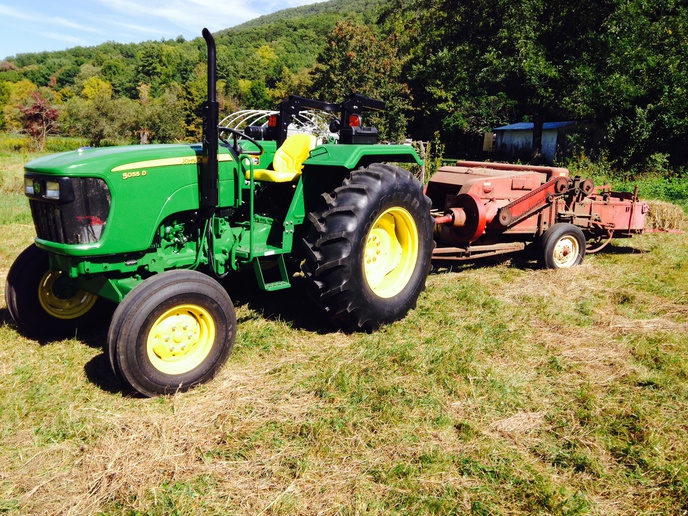(quoted from post at 02:59:51 07/10/15)
(quoted from post at 18:36:42 07/09/15) I can only conclude that farmers must be incredibly rich.[b:af04b80f91] Anybody that can walk into a dealer and put down $50,000 down payment on a new tractor while trading in a used one worth $100,000 is pretty rich in my book. [/b:af04b80f91]
[b:af04b80f91]Consider that the average blue collar worker lives from paycheck to paycheck, is up to his eyeballs in debt, and likely has less than $10,000 available in savings or liquid cash.[[/b:af04b80f91]/quote]
Living within its means versus living beyond its means.
The farmer is most likely up to his eyeballs in debt as well.
Most farmers that I know of are in debt up to there eye balls as stated by Bison. When your that far in debt the banks keep you running and keep giving you more money becuase if they sell you out they will never recover all of there money that you own them; it is a vicious cycle. Now, if it was Joe homeowner, they would forclose on the morgage and take what they could get and cut there losses.
What kills me is that when the milk/grain prices are high they spend all thier money becuase they don't want to pay taxes (which I previously explained) and they never save moeny for when the times are lean. Instead they cry poverty.
My question for them is, how could there fathers and grandfathers farm there whole lives, retire and give there farm to the next generation and when he dies he has a crap load of money sitting in the bank? How was that generation able to do it?
To answer that quation: They did not spend every penny they made, they saved for the lean times, thye paid there taxes, and lived with in there means....


